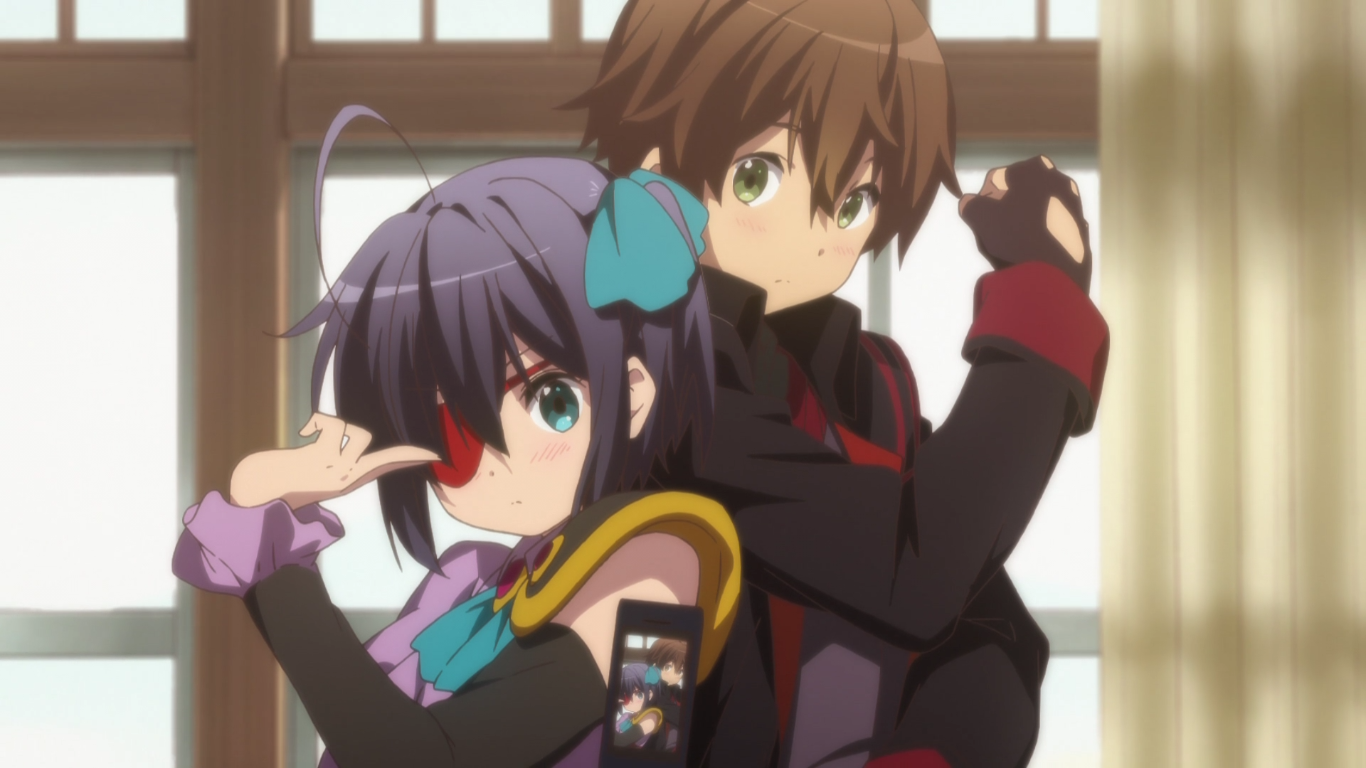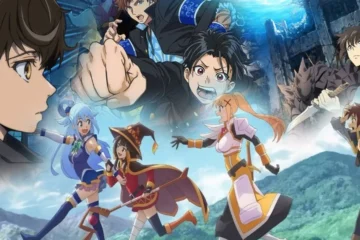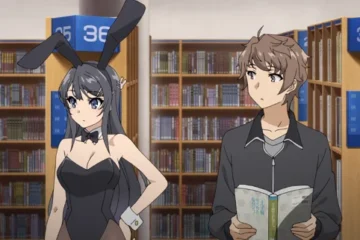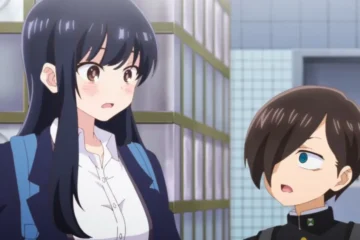Introduction
“Love, Chunibyo & Other Delusions!” is a captivating anime series that explores the intricacies of adolescence, the power of imagination, and the struggles of young individuals navigating their identities. With its blend of comedy, romance, and heartfelt moments, the series offers a unique lens through which we can examine the complexities of youth and the phenomenon known as “chunibyo”—a term used to describe those who harbor delusions of grandeur or an exaggerated sense of self-importance. This article delves into the themes, characters, and impact of this beloved series, highlighting its significance in contemporary anime culture.
Understanding Chunibyo

Chunibyo, or “eighth-grader syndrome,” refers to a stage in adolescence where individuals indulge in fantastical delusions. Often characterized by an inflated sense of self, those affected create elaborate backstories and personas to escape the pressures of reality. This concept is central to the series, providing both comedic elements and a deeper exploration of the struggles faced by its characters.
The Plot Synopsis
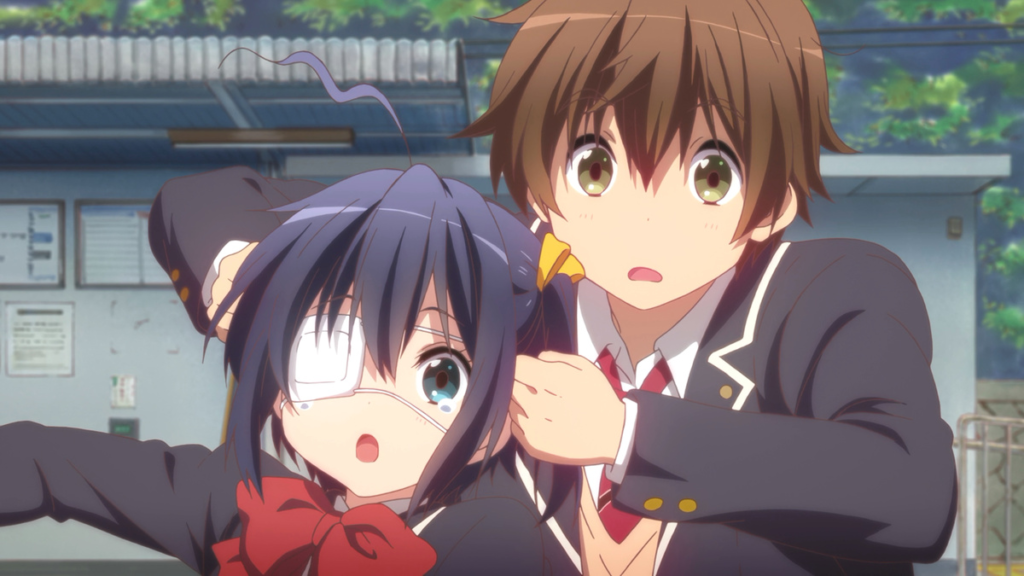
The story revolves around Yuuta Togashi, a high school student who once suffered from chunibyo during middle school. Determined to leave his embarrassing past behind, he tries to fit in with his new classmates. However, his life takes an unexpected turn when he encounters Rikka Takarada, a girl who still embraces her chunibyo fantasies. Rikka believes she possesses supernatural powers and lives in a world of her own creation, complete with imaginary battles and mystical objects.
As Yuuta finds himself drawn into Rikka’s world, he must confront his own past and the remnants of his delusional fantasies. Along the way, they form a close bond, leading to humorous and poignant moments that resonate with anyone who has ever felt out of place during their teenage years.
Key Themes

1. The Power of Imagination
One of the most prominent themes in “Love, Chunibyo & Other Delusions!” is the power of imagination. The series showcases how creative thinking and fantasy can serve as coping mechanisms for dealing with the harsh realities of growing up. Rikka’s whimsical world allows her to escape the loneliness and insecurities she faces, providing a safe space where she can be herself.
2. Identity and Acceptance
The struggle for identity is a universal theme in adolescence, and the characters in the series exemplify this journey. Yuuta’s efforts to distance himself from his chunibyo past highlight the challenges of self-acceptance. Meanwhile, Rikka’s refusal to abandon her delusions emphasizes the importance of embracing one’s true self, regardless of societal expectations.
3. The Importance of Relationships
At its core, the series emphasizes the significance of relationships in shaping our identities. The friendships formed between Yuuta, Rikka, and their classmates provide a support system that helps each character grow and evolve. Through shared experiences and challenges, they learn to accept themselves and each other, fostering a sense of belonging.
Character Analysis
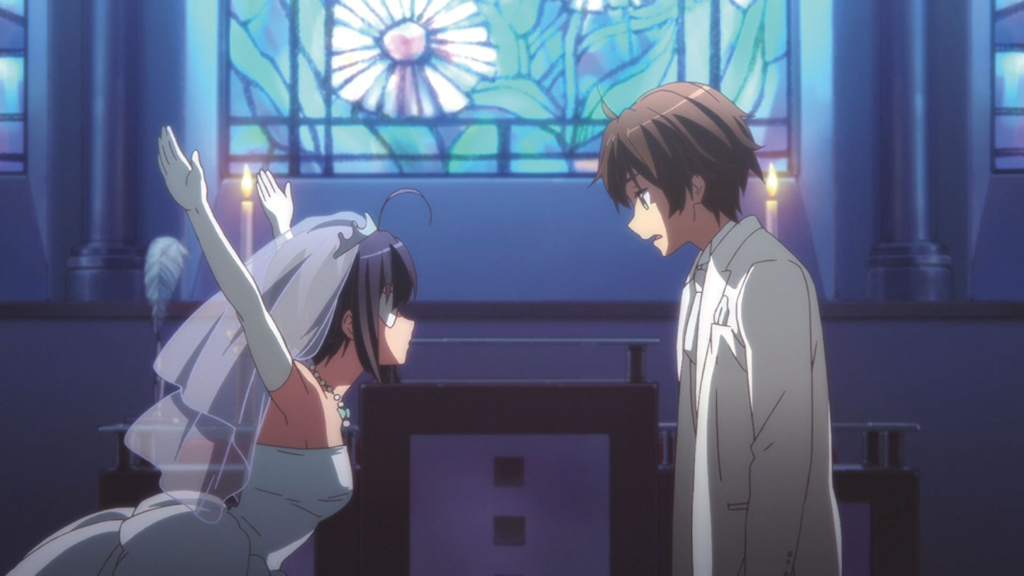
Yuuta Togashi
Yuuta is the protagonist whose journey reflects the challenges of adolescence. Initially, he tries to hide his past, believing that it defines him. However, as he interacts with Rikka and his friends, he learns that embracing one’s quirks is essential for personal growth. His character development serves as a reminder that everyone struggles with their identities, and vulnerability can lead to deeper connections.
Rikka Takaraharacters
The supporting characters in the series, including Shinka Nibutani and Kumin Tsuyuri, contribute to the overall narrative by showcasing various aspects of adolescence. Each character brings their own struggles and perspectives, enriching the storyline and emphasizing the diversity of experiences during this tumultuous stage of life.
The Art and Animation

The art style of “Love, Chunibyo & Other Delusions!” is vibrant and expressive, capturing the whimsical nature of the characters and their fantastical worlds. The animation quality enhances the comedic and emotional moments, allowing viewers to connect with the characters on a deeper level. The attention to detail in character designs and backgrounds adds to the immersive experience, drawing audiences into the enchanting world of chunibyo.
Cultural Impact
Since its debut, “Love, Chunibyo & Other Delusions!” has gained a significant following and left a lasting impact on anime culture. Its relatable themes and endearing characters resonate with viewers of all ages, making it a beloved series among fans. The portrayal of chunibyo has sparked discussions about mental health, identity, and the importance of acceptance, contributing to a broader understanding of these issues within the anime community.
Influence on Other Works
The success of the series has also inspired other creators to explore similar themes in their works. The concept of chunibyo has become a recognizable trope in anime and manga, paving the way for new stories that address the challenges of adolescence through a creative lens.
Conclusion
“Love, Chunibyo & Other Delusions!” is more than just a lighthearted anime; it is a poignant exploration of the complexities of youth and the power of imagination. Through the journeys of Yuuta and Rikka, viewers are reminded of the importance of acceptance, the beauty of friendships, and the significance of embracing one’s true self. As we navigate the challenges of growing up, the series serves as a comforting reminder that we are not alone in our struggles, and that our dreams and delusions can be powerful tools for self-discovery.
Read More: Shiro Takaoji: The Charming Host of Ouran High School Host Club

